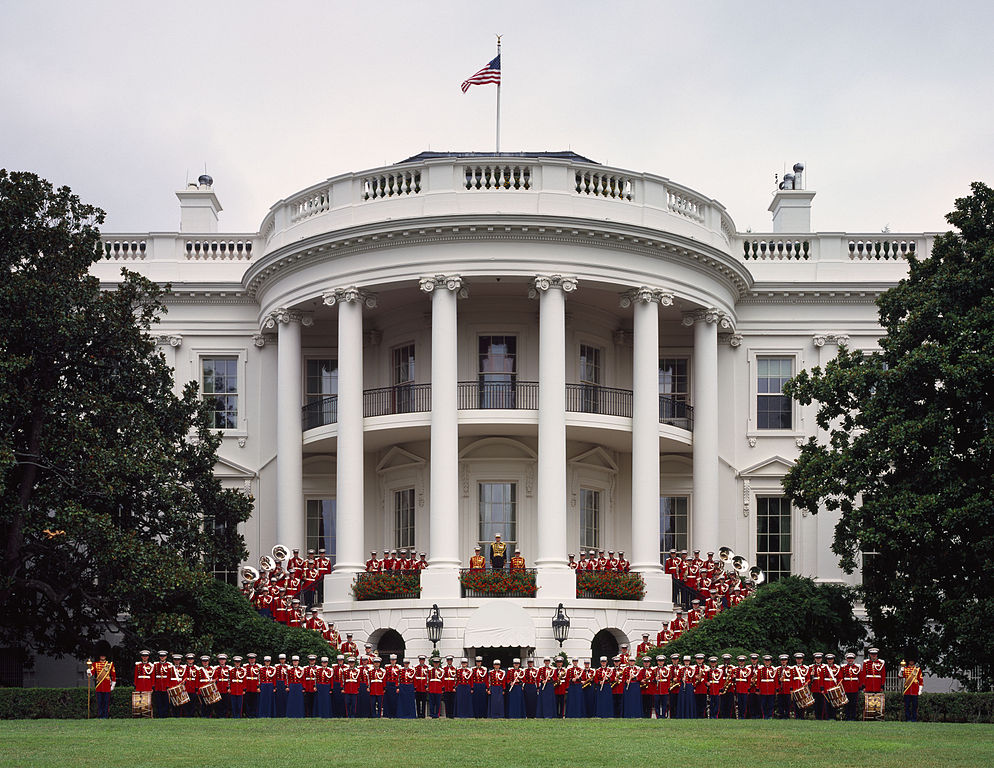Trade Experts Discuss the U.S. Position on International Trade

On October 30, 2020, just shortly before the U.S. presidential elections, the American University Law Review Federal Circuit Fridays Series organized a panel discussion on the U.S. position on international trade. The panel discussion was moderated by Professor Padideh Ala’i, the Director of International and Comparative Legal Studies and the Trade, Investment and Development Program. Three prominent experts joined the discussion: Kelly Ann Shaw, partner at Hogan Lovells and former Deputy Assistant to President Trump for International Economic Affairs; Sally Laing, Senior International Trade Counsel for the United States Senate Committee on Finance and Evan Yu, Senior Consultant at C&MM International.
The discussion evolved around four major issues: the U.S. relationship with China, the breakdown of multilateralism, the crisis of democracy, and COVID-19.
U.S.-China Relations
U.S.-China relations occupy a central stage for the U.S. trade policy. The panelists pointed out that China’s unfair trade practices pose a significant threat to the U.S. and world. The values of the global trading system are undermined by having one of the major trading powers of the world follow a state controlled economic model where the state plays a prominent role in every facet of the economy. In addition to these economic tensions, U.S. China relations have been negatively impacted by the Chinese handling of the COVID pandemic and its and the heavy -handed approach to Hong Kong. . Even a Biden administration cannot easily de-escalate the tensions between the U.S. and China. At the same time, the speakers recognize the two economies are interconnected. In view that for many businesses it is important to have access to the Chinese market, a complete “decoupling” is highly unlikely. But there may well be decoupling in certain key strategic areas like 5G, critical technologies, and medical supplies. Instead, there will be a move for regional cooperation in these critical areas.
The Breakdown of Multilateralism
While the bilateral relations between the U.S. and China are at an all-time low, so are the hopes for a multilateral approach to trade. The speakers referred to the WTO, but mentioned that also other multilateral institutions and agreements relevant for trade are in crisis. For some of the panelists, multilateral trade institutions have become too bureaucratic and they do not effectively address the current challenges. One topic that was discussed was digital trade. While the multilateral institutions were created to deal with the commerce of material goods, e-commerce has led global trading powers such as the U.S., the EU, and China to adopt either unilateral measures or regional initiatives. The number of issues and stakeholders also seems to have increased, as now workers rights, environmental concerns, and many other issues have to be taken into account. This complexity has made it ever more difficult to arrive at effective solutions within the multilateral trade institutions. Another perceived setback of the multilateral trading system is the slow dispute settlement procedure, which does not provide businesses with the solutions they need in a quickly changing business environment.
The panelists demanded that countries around the world became seriously committed again in reforming and adjusting the system. However, so far evidence has shown that states have followed different approaches.
The Crisis of Democracy and Its Impact on Trade
The discussion also turned on the broader context in which trade takes place. During the discussion on China’s WTO membership there was some optimism that a greater integration into the multilateral trading system would lead to more transparency and democratic opening. These hopes have not materialized. Under President Xi Jinping China has shown an unwillingness to engage in democratic reforms. The panelists noted that multilateral institutions can sometimes appear less representative and democratic. The current backlash against globalism and multilateralism has made it hard to work collaboratively and constructively with allies to pursue any effective trade policies. There is not only disillusionment with globalism not benefiting majority of the citizens of the world, there are also serious challenges to the strength and usefulness of democratic institutions to safeguard the rights of all citizens.
COVID-19
The panelists further noted that already with many problems existed before COVID-19, the pandemic has created a “perfect storm.” Our “trade war” has evolved into a broader confrontation involving values, national security, and rule of law.
The panelists noted that, as a direct consequence of the pandemic, some countries have adopted policies to incentivize companies to bring back supply chains that are considered essential for national security and health. The re-shoring of supply chains is a difficult political question that is currently been considered in Congress.